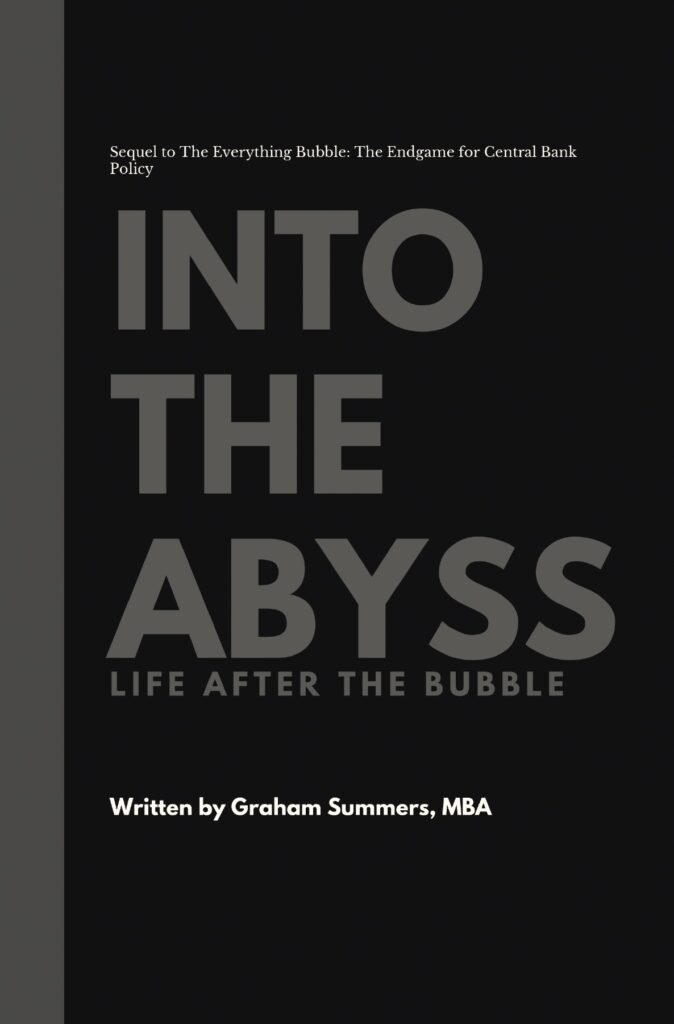More and more analysts are beginning to take note of the “War on Cash.” However, they’re missing the fact that the actual template for what’s coming to the US first appeared in Europe back in 2012.
Back in March of 2012, when the EU Crisis first began to spin out of control, then Prime Minister of France Nicolas Sarkozy openly called for the renegotiation of the Schengen Treaty: the treaty that established the 26-nation EU as a “borderless” entity in which individuals could move from one country to another with little difficulty and which also made trade among EU members easier.
France was not alone either. A few months later, both France and Germany proposed imposing border controls in June of that same year.
A Vote of No Confidence in Europe
Germany and France’s joint proposal to allow Schengen-zone countries to temporarily reintroduce border controls as a means of last resort might sound harmless. But doing so would damage one of the strongest symbols of European unity and perhaps even contribute to the EU’s demise.
Germany and France are serious this time. During next week’s meeting of European Union interior ministers, the two countries plan to start a discussion about reintroducing national border controls within the Schengen zone. According to the German daily Süddeutsche Zeitung, German Interior Minister Hans-Peter Friedrich and his French counterpart, Claude Guéant, have formulated a letter to their colleagues in which they call for governments to once again be allowed to control their borders as “an ultima ratio” — that is, measure of last resort — “and for a limited period of time.” They reportedly go on to recommend 30-days for the period.
Why border controls? Well in truth, it was all about the money… specifically, physical cash. As we’ve noted before… with the vast majority of the global financial system based on digital money… the minute a significant number of depositors try to move their money OUT of a bank and INTO physical cash, the whole system can collapse
Again, Europe was ahead of the US in terms of proposing these terms. The below article dated from 2012 outlines the plan to limit cash withdrawals, shut down ATMs, and impose border controls to stop people from fleeing with their capital.
Exclusive: EU floats worst-case plans for Greek euro exit: sources
European finance officials have discussed as a worst-case scenario limiting the size of withdrawals from ATM machines, imposing border checks and introducing capital controls in at least Greece should Athens decide to leave the euro…
As well as limiting cash withdrawals and imposing capital controls, they have discussed the possibility of suspending the Schengen agreement, which allows for visa-free travel among 26 countries, including most of the European Union.
http://money.msn.com/business-news/article.aspx?feed=OBR&date=20120611&id=15208663
What are the key takeaways from this?
- When the next crisis hits, the Powers That Be are only too happy to let the rule of law will go out the window.
- The biggest problem they face is STOPPING people from moving their money into physical cash.
- To stop #2, capital controls, border controls, and even a CARRY taxes will be imposed.
Moreover, and I want to stress this, Europe has also shown us the template for how this mess will play out. Indeed, the 2013 banking crisis in Cyprus showed us EXACTLY how it will be in terms of speed and timing.
The quick timeline for Cyprus is as follows:
- June 25, 2012: Cyprus formally requests a bailout from the EU.
- November 24, 2012: Cyprus announces it has reached an agreement with the EU the bailout process once Cyprus banks are examined by EU officials (ballpark estimate of capital needed is €17.5 billion).
- February 25, 2013: Democratic Rally candidate Nicos Anastasiades wins Cypriot election defeating his opponent, an anti-austerity Communist.
- March 16 2013: Cyprus announces the terms of its bail-in: a 6.75% confiscation of accounts under €100,000 and 9.9% for accounts larger than €100,000… a bank holiday is announced.
- March 17 2013: emergency session of Parliament to vote on bailout/bail-in is postponed.
- March 18 2013: Bank holiday extended until March 21 2013.
- March 19 2013: Cyprus parliament rejects bail-in bill.
- March 20 2013: Bank holiday extended until March 26 2013.
- March 24 2013: Cash limits of €100 in withdrawals begin for largest banks in Cyprus.
- March 25 2013: Bail-in deal agreed upon. Those depositors with over €100,000 either lose 40% of their money (Bank of Cyprus) or lose 60% (Laiki).
The most important thing I want you to focus on is the speed of these events.
Cypriot banks formally requested a bailout back in June 2012. The bailout talks took months to perform. And then the entire system came unhinged in one weekend.
One weekend. The process was not gradual. It was sudden and it was total: once it began in earnest, the banks were closed and you couldn’t get your money out. ATMs were closed, capital controls were in place, full stop.
There were no warnings that this was coming because everyone at the top of the financial food chain are highly incentivized to keep quiet about this. Central Banks, Bank CEOs, politicians… all of these people are focused primarily on maintaining CONFIDENCE in the system.
How far will they go to maintain this trust?
The Bank of Cyprus, the bank that imploded in 2013 and STOLE clients’ funds was voted Best Bank for Private Banking in Cyprus by EUROMONEY magazine in 2012!!!
No joke…
Bank of Cyprus has been named as the Best Bank for Private Banking in Cyprus, by the internationally acclaimed magazine EUROMONEY
Bank of Cyprus Private Banking ranked first among Cypriot, Greek and other international financial institutions operating in Cyprus in the Private Banking sector…
This recognition by EUROMONEY is ever more important in today’s macroeconomic environment as it reaffirms the Bank’s ability to safely and successfully respond to its clients’ financial needs and emphasizes its clients’ loyalty and trust.
http://www.bankofcyprus.com.cy/en-GB/Cyprus/News-Archive/Best-Bank-for-Private-Banking/
From best bank to totally broke and freezing clients’ accounts in less than one year.
Europe has laid the template for what’s coming to the US.
This is just the beginning. We’ve uncovered a secret document outlining how the Fed plans to incinerate savings.
We detail this paper and outline three investment strategies you can implement
right now to protect your capital from the Fed’s sinister plan in our Special Report
Survive the Fed’s War on Cash.
We are making 1,000 copies available for FREE the general public.
To pick up yours, swing by….
http://www.phoenixcapitalmarketing.com/cash.html
Best Regards
Phoenix Capital Research





